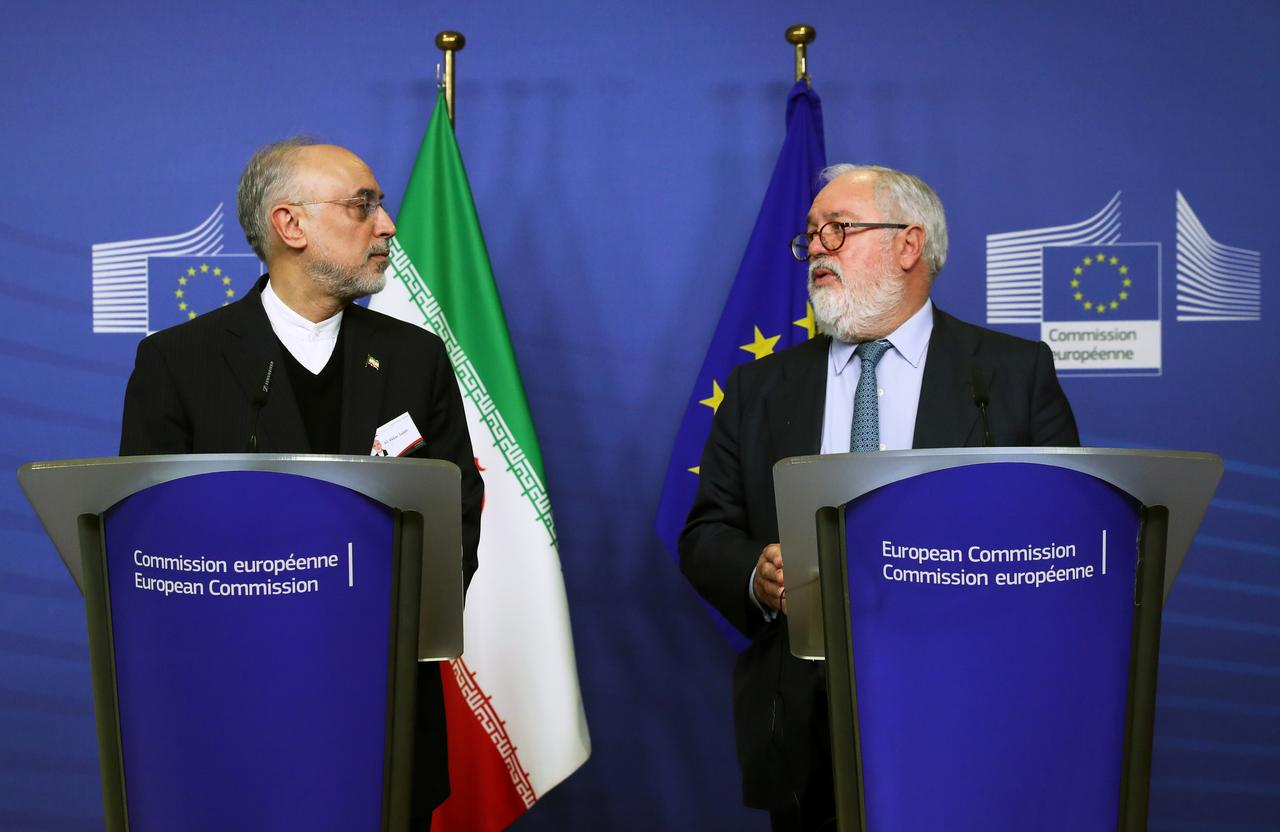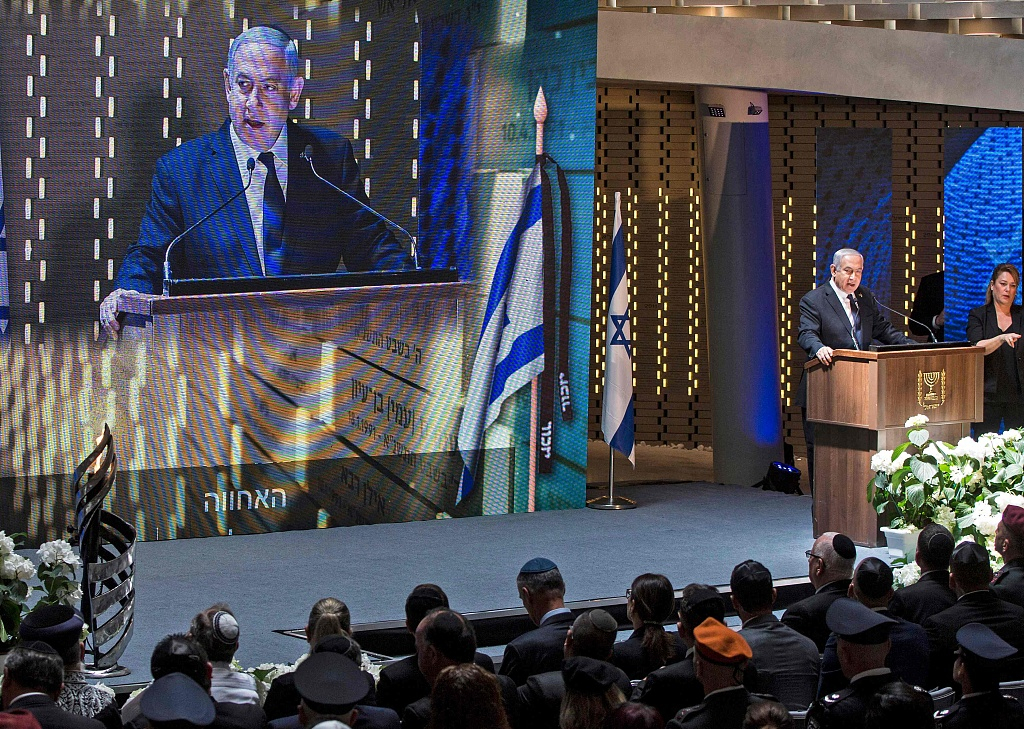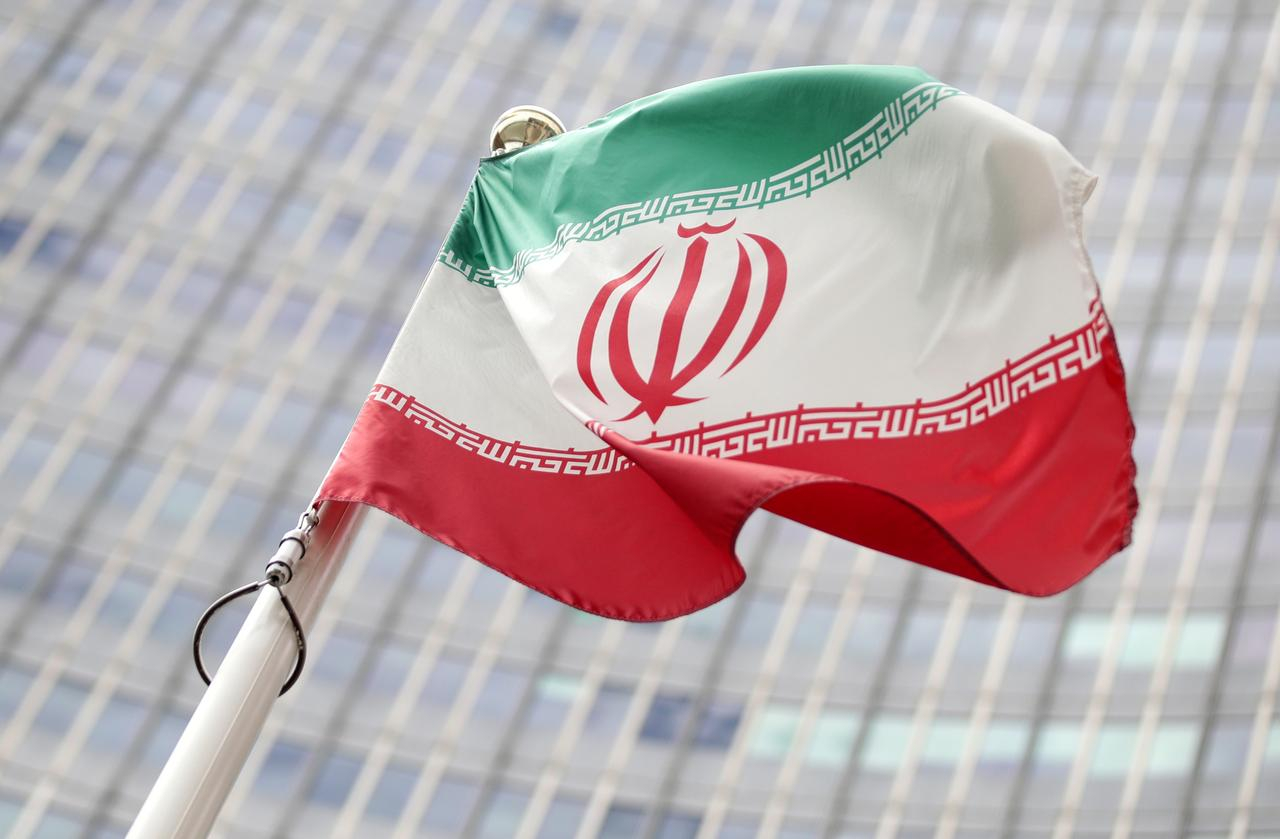
On Thursday, the EU urged Iran to reverse its scale-back of commitments to the nuclear accord struck with world powers, after Iran announced it was ending curbs on atomic research. On the same day, Israeli Prime Minister Benjamin Netanyahu also made an appeal for more international pressure on Iran.
European Commission spokesman Carlos Martin Ruiz de Gordejuela told in a media briefing in Brussels that the decision was "inconsistent" with the Joint Comprehensive Plan of Action (JCPOA), under which the accord is implemented.
"And in this context we urge Iran to reverse these steps and refrain from further measures that undermine the nuclear deal," he said.

EU Energy Commissioner Miguel Arias Canete (R) and Iran's nuclear chief Ali Akbar Salehi hold a joint news conference at the European Commission headquarters in Brussels, Belgium November 26, 2018. /Reuters Photo
"This morning we were informed of another violation, more defiance, by Iran, this time in its striving to attain nuclear weapons," Netanyahu said before leaving for London, where he will meet British Prime Minister Boris Johnson and U.S. Defense Secretary Mark Esper.
"This is not the time to hold talks with Iran, this is the time to increase the pressure on Iran."
Iran says its nuclear program is for peaceful purposes only.
Read more:
Rouhani: Iran to develop centrifuges for faster uranium enrichment from Sept. 6

Israeli Prime Minister Benjamin Netanyahu speaks in Jerusalem's Mount Herzl, Israel, May 8, 2019. /VCG Photo
President Hassan Rouhani's announcement on Wednesday came shortly after the U.S. hit Iran with further unilateral sanctions, the latest in a series of punitive measures including a crippling embargo on Iranian oil exports.
Iran and three European countries – Britain, France and Germany – have been engaged in talks to save a landmark 2015 nuclear accord that has been unraveling since U.S. President Donald Trump withdrew from it in May last year.
Iran is Israel's main enemy and Netanyahu campaigned strongly against the 2015 deal, then urged Trump to withdraw from it.
Despite having opposed the deal, Netanyahu has recently called on European nations to enforce its parameters as he and the U.S. seek to raise the pressure on Iran.

The Iranian flag flutters in front the International Atomic Energy Agency (IAEA) headquarters in Vienna, Austria July 10, 2019. /VCG Photo
Tensions between Israel and Iran were heightened in recent weeks.
On August 24, Israel carried out a strike in Syria it says stopped a plan by an Iranian force to carry out a drone attack on its territory.
Hours later, Tehran-backed Shiite militant group Hezbollah accused Israel of using drones to attack its Beirut stronghold. Israel did not acknowledge that attack.
Hezbollah responded on Sunday by firing anti-tank missiles at Israeli military targets across the Lebanese border, prompting Israel to fire back. There were no casualties.

Copyright © 2018 CGTN. Beijing ICP prepared NO.16065310-3
Copyright © 2018 CGTN. Beijing ICP prepared NO.16065310-3